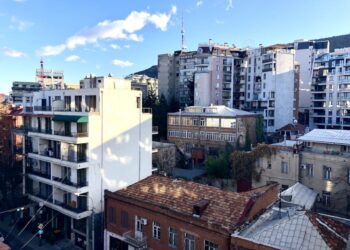On Tuesday October 3, Armenia decided to ratify the Rome Statute, the founding treaty of the International Criminal Court (ICC). That decision immediately got a rection from Moscow, which claimed Armenia’s move as “extremely hostile” towards Russia.
A brief history: Armenia becoming the 124th member to sign the Rome Statute
While Armenia initially signed the Rome Statute in 1998, it took 25 years for Armenia to ratify it. As a matter of fact, in 2004, Armenia’s Constitutional Court ruled that the Rome Statute conflicted with the country’s Constitution, mainly because the national jurisdiction of Armenia was not complementary with the ICC. Since then, the Armenian Constitution has been modified twice, in 2005 and in 2015, to better fit candidacy for the ICC. On March 24, 2023, the Constitutional Court of Armenia finally determined that there was no longer any constitutional conflict regarding ICC membership.
Where Russia was a historical ally for Armenia, joining the ICC now jeopardizes those relations. Indeed, the ICC has issued an arrest warrant for Vladimir Putin, who was indicted for war crimes against Ukraine’s citizens.
The United Nations exposes Putin
The United Nations condemned, among others, the massive number of civilians killed, the destruction of cultural heritage and civilian infrastructure, the deportation of children and the violation of their right to Ukrainian identity. These serious allegations led the ICC to issue a warrant against President Putin and Ms Maria Alekseyevna Lvova- Belova, Commissioner for Children’s Rights.
It implies that every country, including now Armenia, has the obligation to arrest the Russian President if he sets foot on their soil and to extradite him to the Hague Court.
The Armenian Prime Minister, Nikol Pashinyan, insisted that this ratification was not aimed at Russia, but that it was necessary to guarantee that Armenia will be protected by international law against Azerbaijan.
Armenia has denounced Russia’s inaction while fighting against a richer and better armed country, which the Kremlin denies. As such, relations between Russia and Armenia are indeed growing more vulnerable of late.
By Léa Montagne














